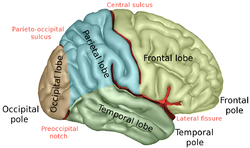
I’m one of those fortunate people with a history of making horrific choices…mostly in the form of relationships. I fell in love quickly, frequently and always, with horrendous results. Love, what I thought was love and my ambitious pursuit of it has always been my undoing. The reasons are many, mostly of my doing and really, kind of sad.
It started when I was 12and in the Seventh grade. I was a straight A student. Then, I met a boy and nothing…NOTHING else mattered. That set a sad precedent for decades to come.
Well, as it turns out, all my worst relationships decisions can be attributed to something beyond my relentless neediness, though I’m sure, that didn’t help matters. The white coat types who thrive in controlled settings, are now say that up until age 25, give or take a year or two, the reason for my impetuous, knee jerk love sessions are the result of a frontal lobe NOT fully formed. Really.
That places teens and young adults in something of a no man’s land. It doesn’t matter how smart we were or how well we did (or didn’t do) on college entrance exams. We make bad decisions based on emotions not logic, Good judgment isn’t something we excelled in.. For me, that didn’t happen until my late 20’s. I was slow. And aI can remember things changing. At around 27-28, I began to process alcohol differently. Hangovers were physically painful and took longer to recover. It was around this age, that I seemed to “settle down” some. The urge to be out and about and never be caught dead at home on a Friday or Saturday night no long compelled me. I remember noting the difference. I could feel the difference. I knew something was changing.
Researchers have known for sometime that adult and teen brains work differently. Adults think with the their brwin’s prefrontal cortex, where all rational thought lives. This is the part of the brain that responds to situations with good judgment and an awareness of long-term consequences. Teenagers and young adults process information with the amygdala, the emotional part.
 In teen brains, the connections between the emotional part of the brain and the decision-making center are still developing. The rub here is that the two aren’t necessarily developing at the same rate. That’s why when teens experience overwhelming emotional input and output and this can make things extremely confusing. When being lectured by my parents for some wrong doing, they’d ask me to explain myself or at least justify whatever rule I’d broken. I can distinctly remember not being able to justify anything, because I couldn’t explain my actions but I could express how it all made me feel. I couldn’t think when pressed to explain, but I could damn sure feel things.
In teen brains, the connections between the emotional part of the brain and the decision-making center are still developing. The rub here is that the two aren’t necessarily developing at the same rate. That’s why when teens experience overwhelming emotional input and output and this can make things extremely confusing. When being lectured by my parents for some wrong doing, they’d ask me to explain myself or at least justify whatever rule I’d broken. I can distinctly remember not being able to justify anything, because I couldn’t explain my actions but I could express how it all made me feel. I couldn’t think when pressed to explain, but I could damn sure feel things.
So, what should parents do as they wait for full frontal lobe development in their kiddies?
Well, don’t do anything my parents did. Their marriage started crumbling when I was 13. In retrospect, Imsont think their front lobes were fully formed either. They punished first, and rarely asked questions later. I became a convenient whipping boy and that was made worst by the fact that I was so desperate to find love and acceptance. It was a household based on so many devastating wrongs, on their part, on my part.
Still, I was just a kid….and one with frontal lobe trying to play catch up.
Researchers say parents can help bridge the growth gap by discussing the consequences of their kids’ actions. This way they can see the link between impulsive thinking with facts. This, they say, helps the brain make these connections and wires it to make this link more often.
Parents should also remind their teen offenders that they’re resilient and competent. It can help to remind them of times in the past they thought would be devastating, but turned out for the best.
Researchers urge mater and pater to become familiar with things that are important to their teenage kids. It doesn’t mean you have to like hip-hop and use emojis and the hippest gifs for every text response, but letting them know they matter and what they’re feeling is important to you can make a tremendous difference.
Ask teens if they want you to respond when they come to you with problems, or if they just want you to listen. Parents tend to jump in with advice to try to fix their children’s problems or place blame. But this can make teens less likely to be open and upfront with their parents in the future. You want to make it emotionally safe and easy for them to come to you, so you can be part of their lives.
Lovely to think so, right? My parents didn’t have the emotional bandwidth to do any of these things. They were born and raised during the Depression and saw World War II unfold as teens and the Korean War just broke out just as their own frontal lobes were applying the finishing touches on growth.
I thought they were horribly mean and unfeeling when I was younger. And don’t get me wrong—-they were, it just took me and my newly fully formed frontal lobe some time to understand the bigger picture, the one that fully captures the light and shadow of motivation. This was something they didn’t know how to do then and still can’t, even as they both enter the later stages of their eighth decade of life on this good Earth.
I’m not bragging when I say I’m more enlightened than my parents. I have to be as a portion of their care now falls in my hands. I’m also willing to admit I didn’t have the same experiences they had growing up….and they didn’t have mine. They were teens in the Forties. Hitler and his his Nazi Huns were engulfing Europe. Hirohito et. al., attacked Pearl Harbor. This means my parents and many of their contemporaries watched their fathers, older brothers, cousins, uncles and family friends march off to war and many didn’t come home and often, those who made it back, were forever changed.
This had to have been extremely difficult.
I’d love for them to return the favor and acknowledge that it wasn’t easy growing in the late 60’s or in the early to mid 70’s, either. There were wars being fought all over the place; in Vietnam and on the home front. The battle for gender equality, racial equality. There was a social war, illuminated in no uncertain terms by burning bras and smoldering draft cards. We battled inflation, gas prices, drugs. We were told we were breathing polluted air so poisonous, drinking water equally as deadly and eating foods engineered from a lab with the same ingredients used to make plastic traffic cones. Cancer and carcinogens were everywhere. I can remember watching Walter Cronkite after s how, and not ho,ding out much hope for my adulthood. It wasn’t Hitler, but menaces that were equally threatening.
Every generation has it negatives, it’s barriers that we either hurdle or hide behind. It’s up to the smarter, more driven members to rise above the blame game and make every effort to understand. And that’s the key I think— understanding and tolerance. Love is great, but really, it’s just a salve and more of a lovely concept. Tolerance, understanding and having enough heart are far more important than love…but not more than “lobe”.
Never under estimate the importance of a fully developed frontal lobe.
